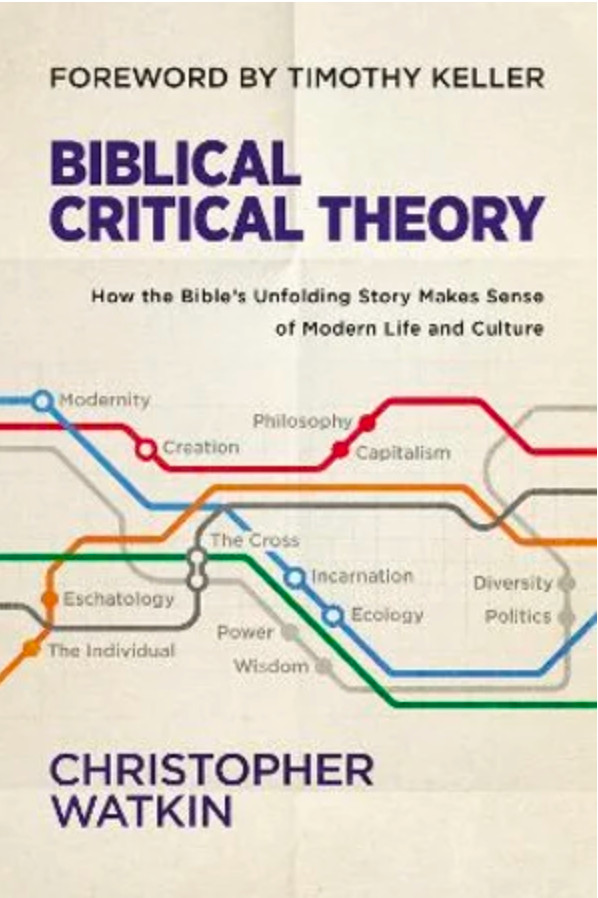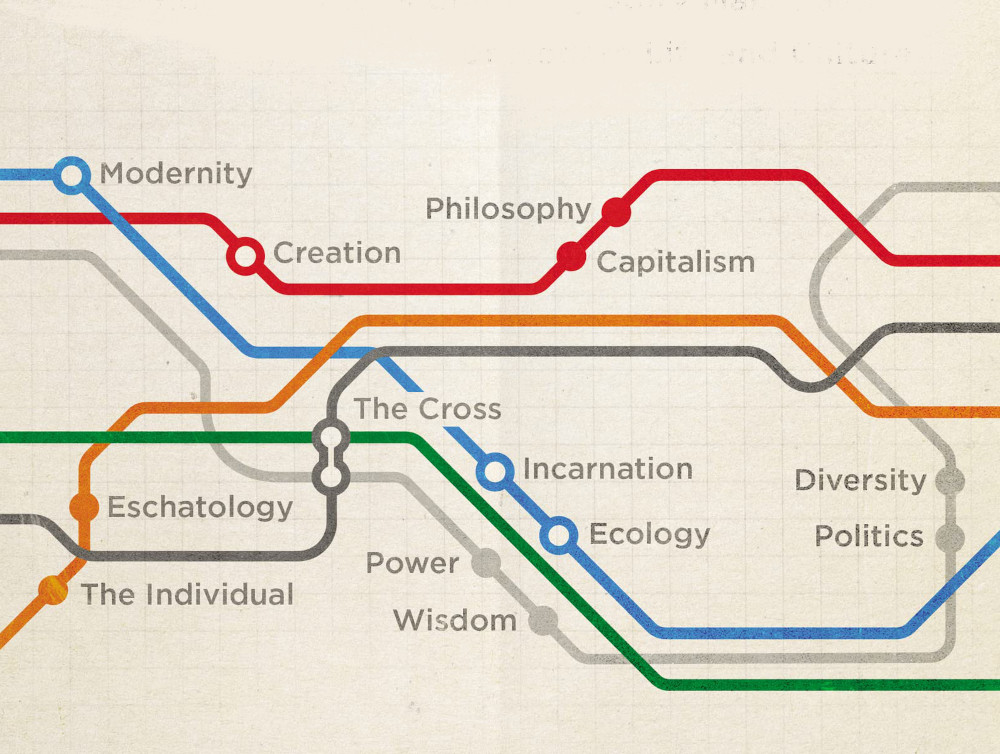A new book Biblical Critical Theory is creating a wave of enthusiasm amongst many Christians. The Other Cheek asked Rory Shiner, senior pastor of Providence City Church in Perth, some questions about this new book by Chris Watkin a lecturer at Monash University who lists his interests as “philosophy, religion, atheism, humanity and freedom,” Shiner has been surfing the wave of interest in this new book and he explains why, starting with the meaning of the title.Book launches are being held at Reformed Theological College in Melbourne on November 18, and at New College, UNSW on November 21.
Critical Theory is usually thought of as something progressives do – so why do a Christian version?
Yes, today we associate Critical Theory with movements such as Critical Race Theory or Critical Gender Theory, which are often on the progressive side of culture. But, as Tim Keller explains in his introduction, “critical theory has an older and more basic meaning. It means to not just accept what a culture says about itself but also to see what is really going on beneath the surface.” (p xv). It is in this sense that Watkin has written a Critical Theory. He is using the Bible—its thought forms, figures, structures, and motifs to interrogate our culture and make critical sense of what’s going on at a deeper level.
What parts of the Bible feature in Watkin’s treatment?
This is part of the genius of the book. Many books of Christian worldview or Christianity and culture will use the ideas of the scripture, but not the actual shape and content of scripture. They might use key verses, such as humanity being made in God’s image (Genesis 1:26), but will often abstract those verses from their context in order to relate the biblical concept to other secular concepts, such as human rights, evolutionary biology, philosophical nihilism and so on. With many books of Christianity and culture, you wouldn’t know the Bible was a story involving a specific people (Israel) who when through specific experiences (rescue from Egypt, exile, kingdom building and so on), and who’s scriptures contains different genres (wisdom, prophesy, history, poetry etc).

Watkin’s distinctive contribution is to embrace not only the content of scripture but the form of scripture. He relates the actual phenomena of scripture, not just its ideas, to cultural critique. And so, in Biblical Critical Theory, we have discussions about Eden, the prophets, the wisdom literature, the kingdom of God, the crucifixion and so on. It’s so much richer as a result! The analysis and critique of culture is vastly sharpened because Watkin’s is deeply interested in the Bible itself. He’s interested not just in what it says, but how it says it.
Why is Watkin so keen on St Augustine, and what can we learn from the man from Hippo?
Haha! Yes, St Augustine was a North African bishop serving in the City of Hippo during the last decades of the Roman empire. Augustine is a towering figure in Christian theology and in western thought more generally.
Augustine wrote a book called The City of God, which is his attempt to relate the theology of the gospel to what was then happening to Roman culture and society. It is, in its own way, a Christian Critical Theory. The book is part of the origin story for Watkin’s book. Watkin read The City of God on a family holiday in Yorkshire many years ago and reading Augustine planted the seed for Biblical Critical Theory.
At the Gospel Coalition conference, Watkin said that we need to come to terms with being creatures of our age. We are all late moderns. What does this mean for us?
Yes! It’s foolish to imagine that we are a-historical creatures, completely unaffected by our age and culture. Or that Christianity lifts us up out of culture into this kind of a-cultural realm. We are creatures, and part of that is being embedded in time, place, and culture. The work of living faithfully for Jesus involves thinking critically about our age and allowing the scriptures to speak critically both to our culture and to those parts of our culture that we have ingested which don’t lead us to faithfulness. But, just as Augustine wrote as a Latin-speaking, educated Roman, we are Moderns. Our task is to think critically about how to be faithful Moderns, not about how we could have been faithful if only we were born in a different time and place.
Can’t we simply be Biblical without the Critical Theory part?
At one level, yes. Watkin’s book is very clearly written, but it is intellectually demanding. Not everyone should read it. And it is true that most Christians can happily get through life serving Jesus without having a self-conscious “Critical Theory” of anything.
However, as Christians we don’t just want the Bible to sit on a shelf exuding authority but never actually doing anything. We want it to shape our lives and discipleship, and part of that is allowing it to critique the deep structures of our culture. Being Biblical might not require knowing what a “Critical Theory” is. But it does require doing what Biblical Critical Theory does—allowing the Bible to expose the deep structures of our culture.
What can Biblical Critical Theory rescue us from?
I think Spurgeon once said: “Defend the scriptures? I’d sooner defend a lion!” Biblical Critical Theory has a similar posture. It can rescue us from feeling like we need to defend the Bible, and instead puts the Bible (both in its content and form) on the front foot in apologetics and cultural analysis. It rescues us from anemic “Christian world-view” books into a much more exciting approach to culture and apologetics. And, with Watkin’s background in modern thought and especially modern French philosophy, it rescues us from second-or-third hand accounts of key thinkers such as Foucult and Derrida. Watkin knows this world intimately, and he is simultaneously more sympathetic toward and more critical of the tradition as a result.
Who should read this book?
Pastors, Arts and Humanities students, curious year 12 students, teachers, chaplains, preachers, artists, Christians exercising leadership in secular contexts, journalists, academics. It really is a terrific book, and will replay careful reading. My recommendation is to read it cover to cover as a book, and then keep it on your reference shelf. It’s the kind of book you’ll dip into again and again.
Biblical Critical Theory: How the Bible’s Unfolding Story Makes Sense of Modern Life and Culture by Chris Watkin is available from the Wandering Bookseller and other bookstores.

